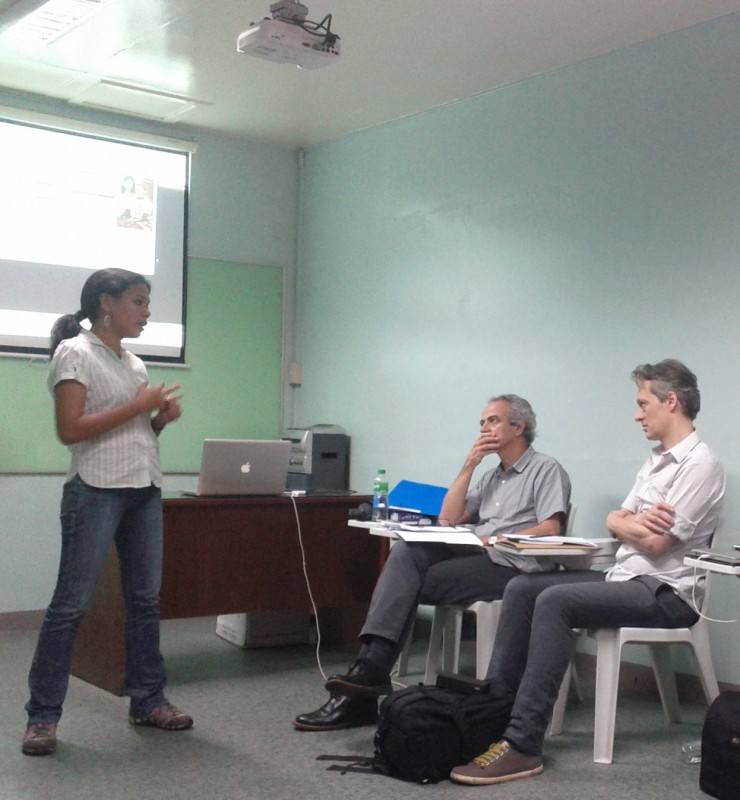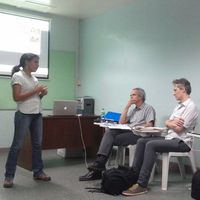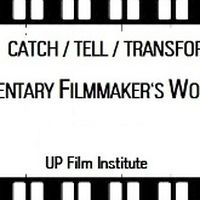Documentary filmmaking and multilateralism | A conversation with Yves de Peretti
 Contributed by David Ocón
Contributed by David OcónDavid Ocón has interviewed Yves de Peretti, from the Ateliers Varan (France), one of the organisers of ‘Catch-Tell-Transform: 4th Documentary Filmmakers’ Workshop’. Organised in Manila, The Philippines from April to October 2013, this unique initiative gathers young promising filmmakers from Southeast Asia to enhance their skills and build new audiences for their work.
The project is supported through ASEF’s Creative Encounters: Cultural Partnerships between Asia and Europe programme.
Yves de Peretti is a renowned film director who works for Ateliers Varan, an internationally recognised film school based in France that specialises in documentary filmmaking and whose teaching methods lie in learning through practical experience. Last year, Yves co-facilitated a documentary filmmaker’s workshop for Filipino emerging directors. In 2013, as part of the team of experts, he builds on that initiative and co-leads a group of twelve Southeast Asian filmmakers in Manila, on the path through the different stages of their film projects, towards the completion of their documentary films.
Q: Yves, as part of Ateliers Varan, you have facilitated many types of workshop. What is so special about this one that made you participate as a facilitator again?
I think it is important to have a continuation on these kinds of projects, so the idea came a bit from the frustration that after spending so much effort, time and energy analysing the different phases of the process of doing a film, in the previous workshops the participants did not have the chance to go until the end and make their films with us. So this is why we opened the participation to people who had already taken part in the first three editions, with the important addition that this year the workshop offers some seed money for the participants to accomplish their films.
I come from Ateliers Varan, an important school in teaching documentary, and for us it is very important to create a pool of new people who have the spirit to do documentaries. We want to transmit them the idea of how documentary filmmaking can be, as an art, at the same level as fiction. Some of these films could later travel to some international festivals. Before it was mainly European, North American and in general Western filmmakers making documentaries in the whole word, but that trend has changed rapidly and we think it is going to change more in the future. In this workshop, for instance, you have emerging filmmakers from Cambodia, Indonesia, Bhutan, Singapore and the Philippines.
Q: Some of these new filmmakers are addressing sensitive issues, in some cases, topics never before examined by documentaries in their countries. Why do you think this is the case and how is it different from the topics the participants chose last year?
Well, documentary is an expression of the sensibility of a moment. In the case of the Philippines, for instance, this year we have three projects that will be talking about issues that took place during the Marcos rule. That probably means that the society is more ready to talk about these issues, enough time has passed and the new generations want to know how it was back then and talk about it. The region, Southeast Asia, is more ready than before to openly talk about some issues that were previously taboo.
Q: What is the main challenge for you as facilitator of this workshop?
To be able to give enough energy and courage to the participants, to push them, so that they can go through the different phases until the end of their projects, which in the end it is the successful production of their own documentary films.
Q: What main challenges do you see for the participants in the workshop?
From what I understand, there is not a strong tradition of documentary in the region, it is a concept still quite new. Until not so long, when documentaries were being made in the region, they were mainly for television, done somehow in a journalistic way. That explains why last year, for instance, many of the participants had initially a strong influence from sort of “video clip music” or television style films, which did not make sense in the context of documentary filmmaking. Documentary films are for reflection, to think, not all the answers should be given to the audiences, like in TV. Documentary filmmaking is a sort of cinema art expression, where the filmmaker finds a way to express its own vision and shows its own style, a unique one. Now, with easy and cheaper access to computers, cameras and home systems, the new generations have it all more accessible and if they are interested, they can produce new types of films with these new tools. They can communicate their own personal vision on topics, not the one the television tells them to.
Then, the challenges are also very different for each participant. They are not all at the same level. Some are quite advanced and know better what they want to do and achieve. Others are more beginners and they are on the way yet to find their own way of expression. The challenge for these ones is to understand what they want and not just to copy from others but to find their own style. With globalisation, styles of doing films get closer; filmmakers use the similar tools, ways of thinking and networks. This workshop is an interesting opportunity for them to do their personal projects, to speak about the reality of a concrete moment in their countries from a personal point of view, to find their style.
Q: Why do you think workshops like this that comprise of a multilateral group of organisers, supporters, experts and participants, are important for the field of documentary filmmaking?
I think this is one of the most exciting aspects of this workshop, that it is a collaboration between German, French and Filipino organisations, and has this year for the first time the support of an international organisation such as the Asia-Europe Foundation (ASEF). That brings the discussions to a higher level than if all is unilateral. Multilateralism goes well with the essence and culture of documentary filmmaking: a very open minded one, ready to talk, to discuss and to mix.
These kinds of workshops, where young and emerging filmmakers or producers get to meet and collaborate, are necessary in order to develop multilateral connections. It is important for people from these countries to see what projects others, in their region and in other regions, are doing. The culture of documentary filmmaking can progress with more of these kinds of multilateral exchanges.
See also the interview with Ilang Ilang Quijano, one of the participants of Tell/Catch/Transform:
http://film.culture360.org/magazine/constructive-criticism-will-make-you-reflect-harder-on-your-project-interview-with-ilang-ilang-quijano/
Catch/Tell/Transform is a workshop organised by the Goethe Institut Philippines, the Embassy of France and the Alliance Française in Manila, in collaboration with the University of the Philippines Film Institute. It has the support of the Asia-Europe Foundation (ASEF).
David Ocón has served as Head of the Cultural Department at Instituto Cervantes’ centres in Ireland and China. Previously he was a Project Manager at the Asia-Europe Foundation (ASEF), and a Communications Officer for the European Network of Cultural Administration Training Centres (ENCATC).
He has taught International Cultural Cooperation courses since 2008 at University of Barcelona, and has published academic articles in several international specialised journals and co-edited a number of publications and art catalogues. At present he is an arts manager, consultant and researcher based in Southeast Asia.
Similar content
from - to
23 Nov 2013 - 06 Dec 2013
By Kerrine Goh
29 Sep 2007
posted on
05 May 2011
By Kerrine Goh
03 Jun 2005


